Turkey’s presidential election will be decided in a May 28 run-off vote. In the first round, President Recep Tayyip Erdogan took 49.5 percent of votes versus his main challenger, Kemal Kilicdaroglu’s 44.9 percent. While Muharrem Ince withdrew from the presidential race days ahead of the vote, Sinan Ogan, the ultranationalist candidate backed by an anti-migrant party received 5.2 percent, enough to swing the run-off vote in favor of either of the candidates, pushing Turkey into a second round. In the parliament, there is a winner. Erdogan’s electoral alliance with the Nationalist Movement Party (MHP), secured an absolute majority, getting around 325 seats out of 600.
I was in Turkey a couple of weeks before the first-round elections that took place on the 14th of May. On my second day in Istanbul, I met with a friend/colleague to discuss how to proceed with our ongoing research paper. She was just back from the earthquake zone and told me about how fast the atmosphere has been changing in favor of the government since February. I was not expecting to hear rising support for the government after thousands died and millions were left homeless. We have all witnessed how the ruling regime largely failed to respond to the earthquake in the early days of the disaster. It was mostly the non-state actors that provided much-needed services to those affected, providing shelter, food, and medical supplies. Yet, the election results proved that her predictions were accurate. In the earthquake zone, Erdogan mobilised more votes than predicted. The promise of new houses to the victims, expansion of government jobs, and cash sum payments seemed to contribute to this outcome. In the rest of the country, Erdogan’s nationalist election campaign managed to mobilise the electorate at a time when the conflict with the Kurdish armed movement in Iraq and Syria intensified. The opposition’s political campaign highlighting economic problems, triple-digit inflation, and deepening corruption, however, just underlined what was already known.
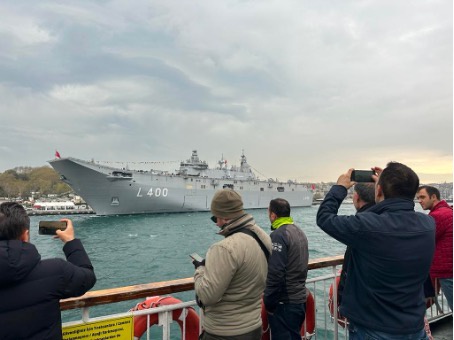
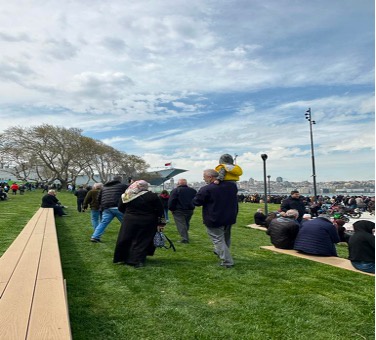
It was very interesting to see all those families with small kids, old people, and young conservative women lining up to see Bayraktar drones, aircraft, Altay tanks and other high-tech defence equipment. They were having selfies with the SIHA ship on their back, some were chanting for Erdogan with Turkish flags in their hands. I recorded a video of the queue, and it took me more than five minutes to walk until the end of the line. I couldn’t make it to the ship, it was next to impossible for half of the people waiting to reach to ship before the closure time. But I guess I saw enough.
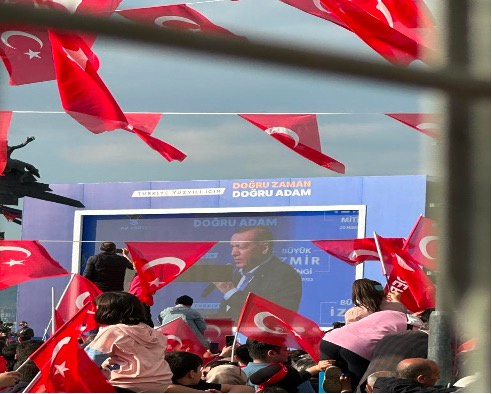
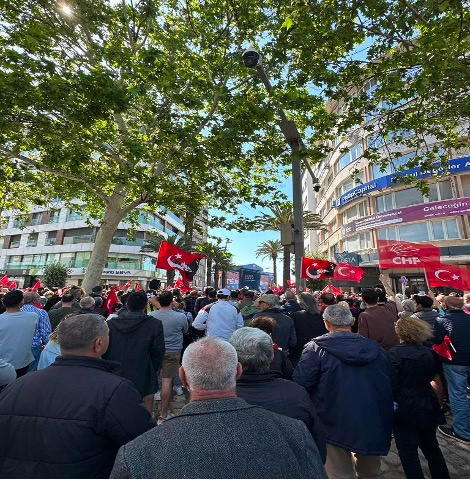
The next day, Izmir Gündogdu Square got ready for Kilicdaroglu. The crowd was immense. There was a peaceful environment with the leaders of the opposition coalition giving 10 minutes speeches in a row (Only Ahmet Davutoglu, the leader of the Future Party, exceeded his time limit and talked for 28 minutes). When Kilicdaroglu appeared on the stage thousands welcomed him by chanting “Hak, hukuk, adalet!” (Rights, law, justice!).
I was next to a group of youngsters with their backpacks. They were making heart shapes with their hands and loudly singing the election song “I promise, Spring will come!” (They were on their smartphones during the Davutoglu speech).
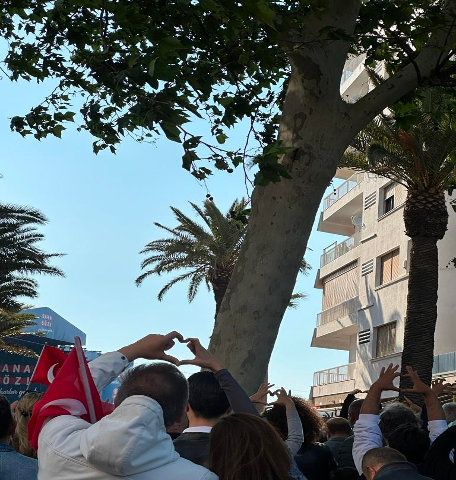
At home, my parents were following the rallies on TV. Erdogan’s rally was fully covered by the state TV (TRT) and other mainstream TV channels that are under almost complete control of the government (and their business allies) while the election rallies of the opposition were cut short. Before the first round, I came back to Aberdeen. I voted at the airport. In a week, Turkey went to elections under these conditions which were utterly not fair. During the election day and the counting afterward, many irregularities were reported. International Election Observation Mission also reported the lack of transparency in the process of handling the complaints by the Supreme Electoral Council. It is already noted by many scholars including myself how the bureaucracy got stacked with the loyalists of the government and was no longer independent. Elections, held under these conditions, can still be free but cannot be fair. The second round in Turkey’s election will take place on May 28. Registered Turkish voters living abroad have begun voting. This time I voted in Edinburgh Turkish Consulate after waiting in the queue for 10-15 minutes. I am not so sure the official turnout will be record high like last time (in the first round it was 88.9%). It is also hard to predict the result of the elections, but it seems like the second round won’t be about heart gestures and flowers as the opposition leader Kilicdaroglu hardened the nationalist tone, marking an anti-migrant turn in his rhetoric. I am sure many will be watching the election in Turkey this Sunday to better understand the populists and strongmen regimes that are now on the rise in world politics.


